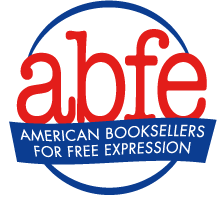- Categories:
Booksellers Reaffirm Support for Charlie Hebdo
- By Chris Finan
 The American Booksellers for Free Expression (ABFE) has joined the National Coalition Against Censorship, the Association of American Publishers, and others in reaffirming their support for Charlie Hebdo, the French satirical magazine that was attacked by terrorists in January. In recent days, prominent American literary figures have criticized Charlie Hebdo for cartoons that they believe are anti-Muslim.
The American Booksellers for Free Expression (ABFE) has joined the National Coalition Against Censorship, the Association of American Publishers, and others in reaffirming their support for Charlie Hebdo, the French satirical magazine that was attacked by terrorists in January. In recent days, prominent American literary figures have criticized Charlie Hebdo for cartoons that they believe are anti-Muslim.
Cartoonist Garry Trudeau accused the magazine of “hate speech,” and more than two dozen writers have joined a protest against PEN American Center’s decision to honor Charlie Hebdo at its annual gala. The protesters include Junot Díaz, Joyce Carol Oates, Lorrie Moore, Peter Carey, Michael Ondaatje, Francine Prose, Teju Cole, Rachel Kushner, and Taiye Selas.
ABFE and the American Booksellers Association spoke out strongly at the time of the attack on Charlie Hebdo, which killed 10 members of the staff and two police officers. It defended the magazine’s right to free speech and assisted booksellers in obtaining copies.
On Thursday, April 30, the National Coalition Against Censorship, of which ABFE is a member, released the following statement:
Charlie Hebdo Redux
It did not take long after the murderous attack on the French newspaper Charlie Hebdo for the question to be raised — as it was when The Satanic Verses by Salman Rushdie was published in 1988 — about the limits of artistic license, or more precisely whether writers and artists should refrain from giving offense under some circumstances.
Doonesbury cartoonist Garry Trudeau used his George Polk Awards speech this month to criticize Charlie Hebdo, arguing that the paper had “succeeded in provoking many Muslims throughout France to make common cause with its most violent outliers.” He added that “satire punches up, against authority of all kinds,” and that by “punching downward” and “attacking a powerless, disenfranchised minority with crude, vulgar drawings...Charlie wandered into the realm of hate speech.”
Similar sentiments have been voiced in recent days as prominent writers and artists have voiced doubts about whether Charlie Hebdo’s brand of satire deserves celebration by the literary and human rights organization PEN American Center.
We take no position on the selection of award recipients, which involves considerations unrelated to free expression. However, we take this opportunity to comment on the underlying debate over Charlie Hebdo’s content, which does have profoundly important implications for free expression.
Critics claim Charlie Hebdo published offensive images that mocked Muslims, a group marginalized and sometimes demonized in France and elsewhere. Some defenders claim that these images were misconstrued, saying that the magazine’s trademark was challenging the status quo, and that the target of its satirical drawings was not Islam, but those who engaged in violence in its name. Others point to the stifling nature of pressure to sanitize art and literature to avoid giving offense.
Like much of art and imagery, there is no “correct” description: the cartoons are subject to multiple, possibly conflicting interpretations. And while one might prefer that satire “punches up,” determining which way is “up” can be difficult. There is considerable power in threatening violence, and as it turns out the slain Charlie Hebdo staff members and two police officers were ultimately the losers in the power struggle with violent extremists.
We condemn threats of violence and, even more vehemently, acts of violence. Regardless of one’s view of the cartoons, there is honor in the refusal to be silenced in the face of such threats, or in the aftermath of an attack. Recognizing this, in our view, implies no lack of commitment to efforts to eradicate inequality and injustice. Indeed, we believe that civil and human rights cannot be promoted without a robust commitment to free expression, including the right to offend. The history of liberation movements, including civil rights, gay rights, and women’s rights, speaks to the power and necessity of the right to offend and to challenge established norms.
We strongly support Charlie Hebdo’s brave stand for the right to speak, criticize, and even offend.
Endorsed by:
National Coalition Against Censorship
Association of American Publishers
American Booksellers for Free Expression
Comic Book Legal Defense Fund
FirstAmendment.com
Project Censored
Tully Center for Free Speech
Wendy Kaminer
Greg Lukianoff (President and CEO, FIRE)

